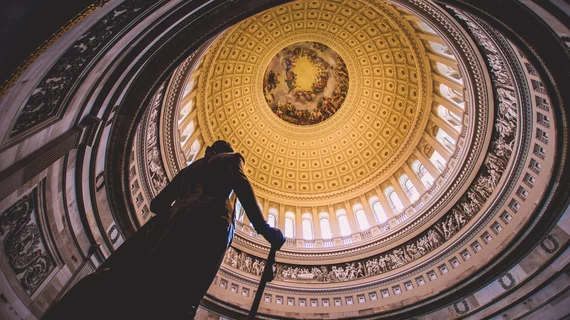'Commonsense’ new surprise medical billing proposal gets positive first review from radiologists
U.S. lawmakers have released new legislation aimed at addressing surprise medical billing, a healthcare practice that has flustered politicians on both sides of the aisle. And one provision that rankled radiologists appears to have been booted.
The House Ways & Means Committee released its proposal Friday, which includes a baseball-style independent review process to settle disputes between providers and payers. This is a departure from previous iterations that tied out-of-network physician payment to median, in-network benchmark pricing. Back in December, imaging professionals said such benchmarking could have “devastating unintended consequences" on small practices.
The American College of Radiology—which opposed previous versions of surprise medical billing legislation—said it was still reviewing the legislation late Friday. But its initial scan was favorable.
“ACR has been working with Congress to find a fair solution to protect patients from surprise medical bills. We are still studying the Ways and Means bill, but our initial analysis is positive,” Cynthia Moran, ACR executive vice president of health policy and government relations, said in an email. “We will be closely following the markup next Wednesday.”
In their own statement, Ways and Means Committee Chairman Richard Neal, D-Mass., and Ranking Member Kevin Brady, R-Texas, called the process to craft this bill “painstaking,” but necessary.
“Our bipartisan approach differs from other proposals in that we require—for the first time—that patients receive a true and honest bill in advance of scheduled procedures,” the two lawmakers said Friday. “We create a more balanced negotiation process to encourage all parties to resolve their reimbursement differences before using the streamlined and fair dispute resolution process.”
A previous competing proposal from House Energy and Commerce Committee Chairman Frank Pallone Jr., D-N.J., also garnered bipartisan support last year. However, that’s been shelved amid “sharp divisions” on this topic. House Speaker Nancy Pelosi, D-Calif., has worked to mend those tensions behind the scenes, the Hill reported.
In yet another statement issued Friday, Pallone and HEC members called surprise medical billing “outrageous” and the “result of a broken system that takes advantage of vulnerable patients.” Committee members stopped short of endorsing this new Ways & Means proposal, though, adding: “Protecting innocent patients has been our top goal throughout this effort, and we appreciate that the other two House committees share this priority. We look forward to working together to deliver a bill to the president’s desk that protects patients and lowers healthcare costs for American consumers.”
The American Federation of Hospitals, which has aligned with the ACR previously on this issue, expressed similar optimism at this stage in the process.
"The plan authored by Chairman Neal and Ranking Member Brady provides certainty for patients while enabling the healthcare community to settle payments without unnecessary rate setting,” AFH President and CEO Chip Kahn noted in a separate statement. “We are pleased to see this progress on surprise billing legislation and hope that the Congress can unify around this commonsense solution."

